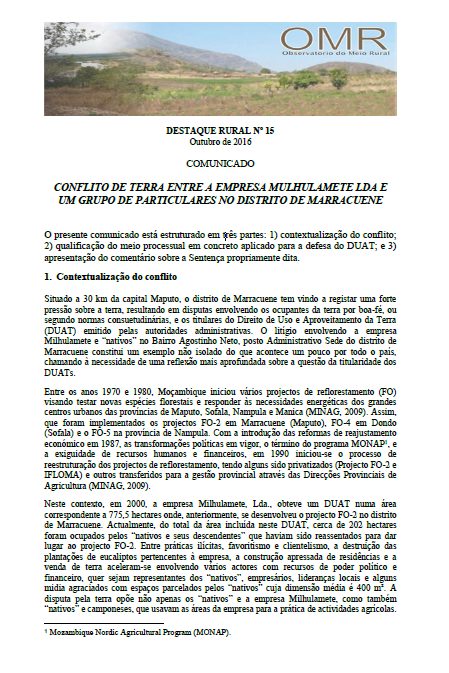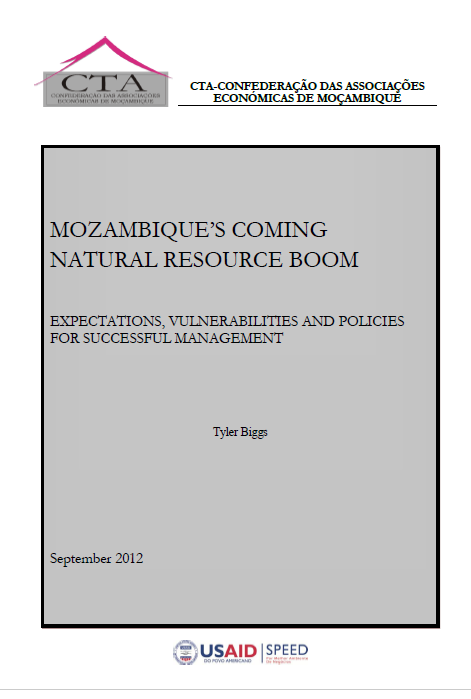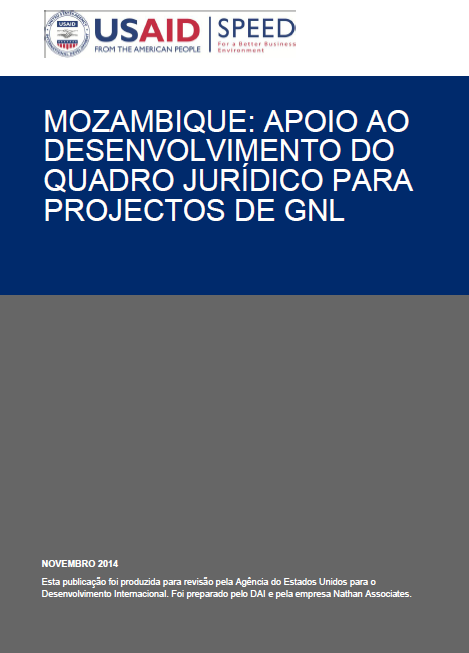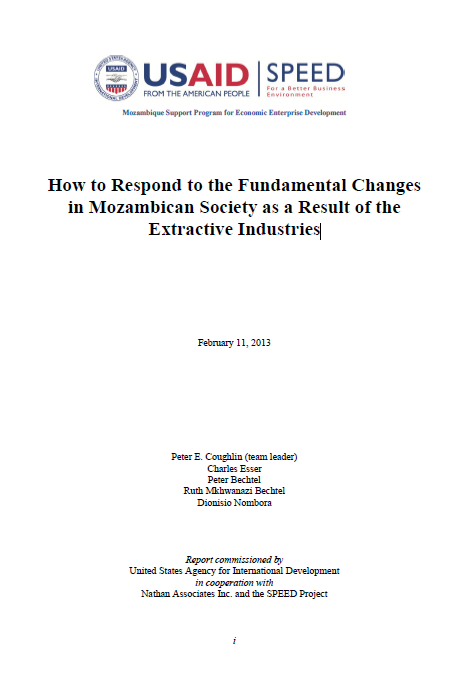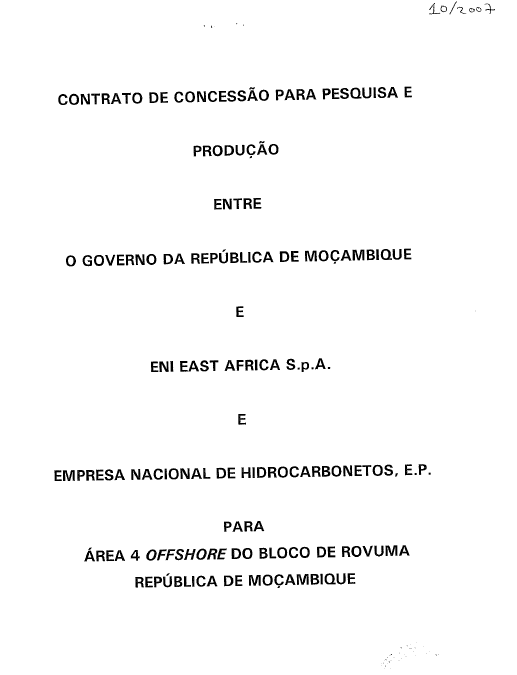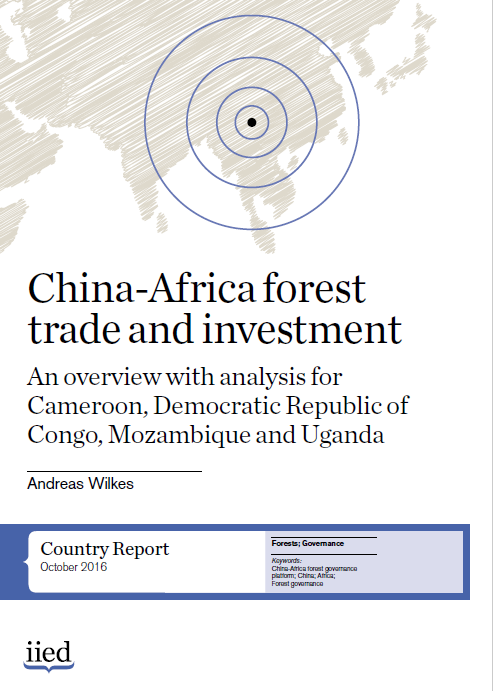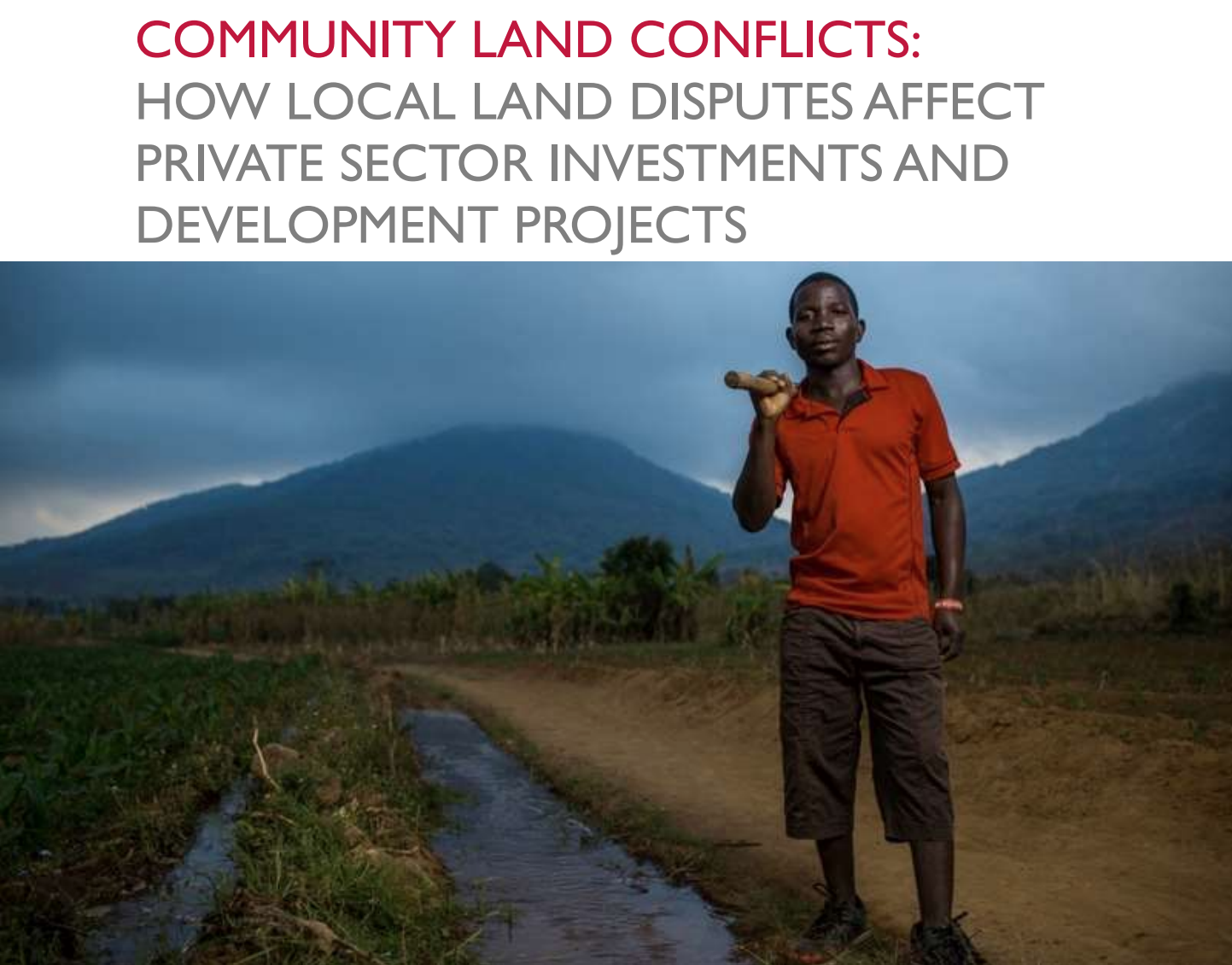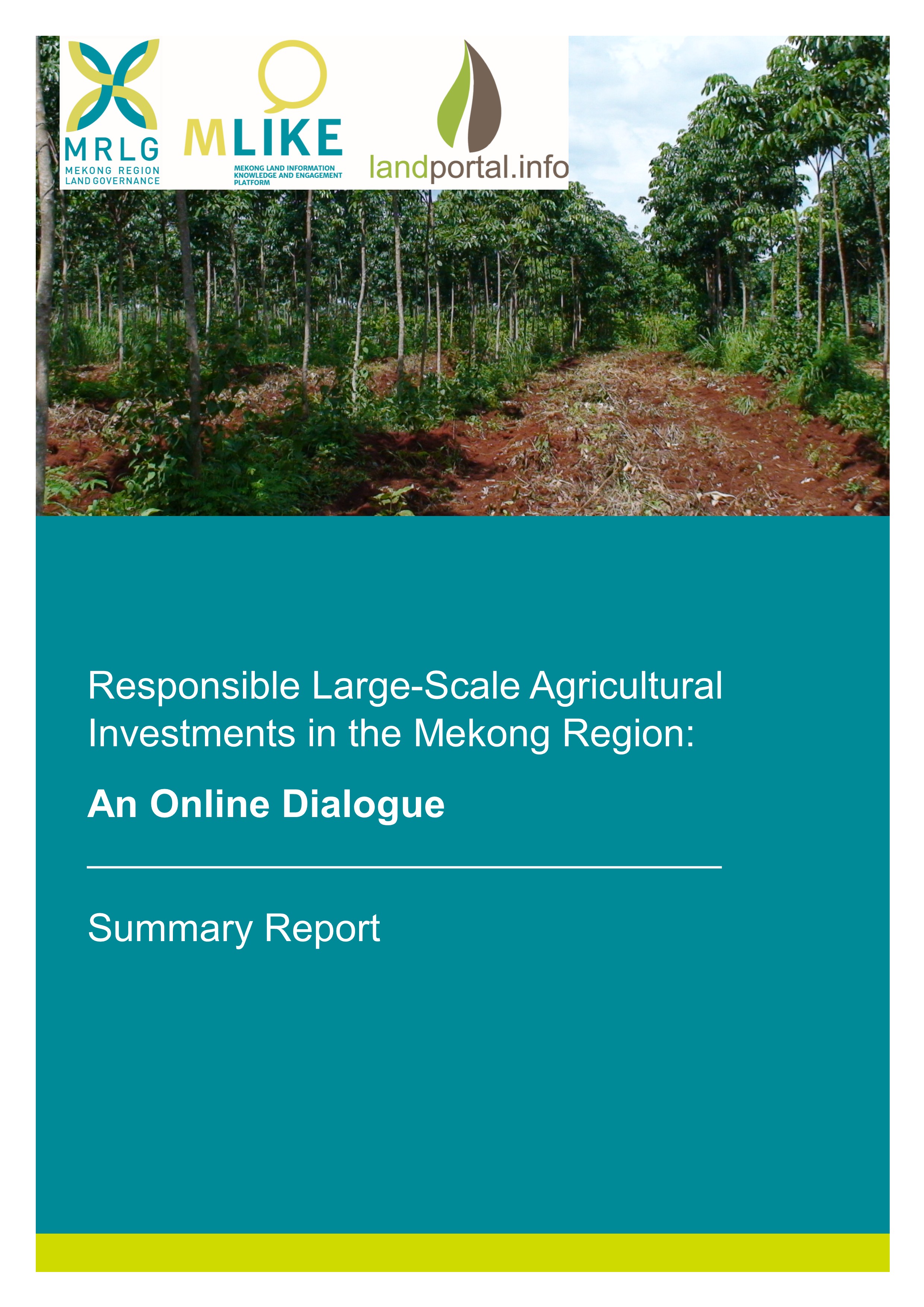Conflito de terra entre a empresa Mulhulamete LDA e um grupo de particulares no distrito de Marracuene
O presente comunicado está estruturado em três partes:
- contextualização do conflito;
- qualificação do meio processual em concreto aplicado para a defesa do DUAT;
- apresentação do comentário sobre a Sentença propriamente dita.

